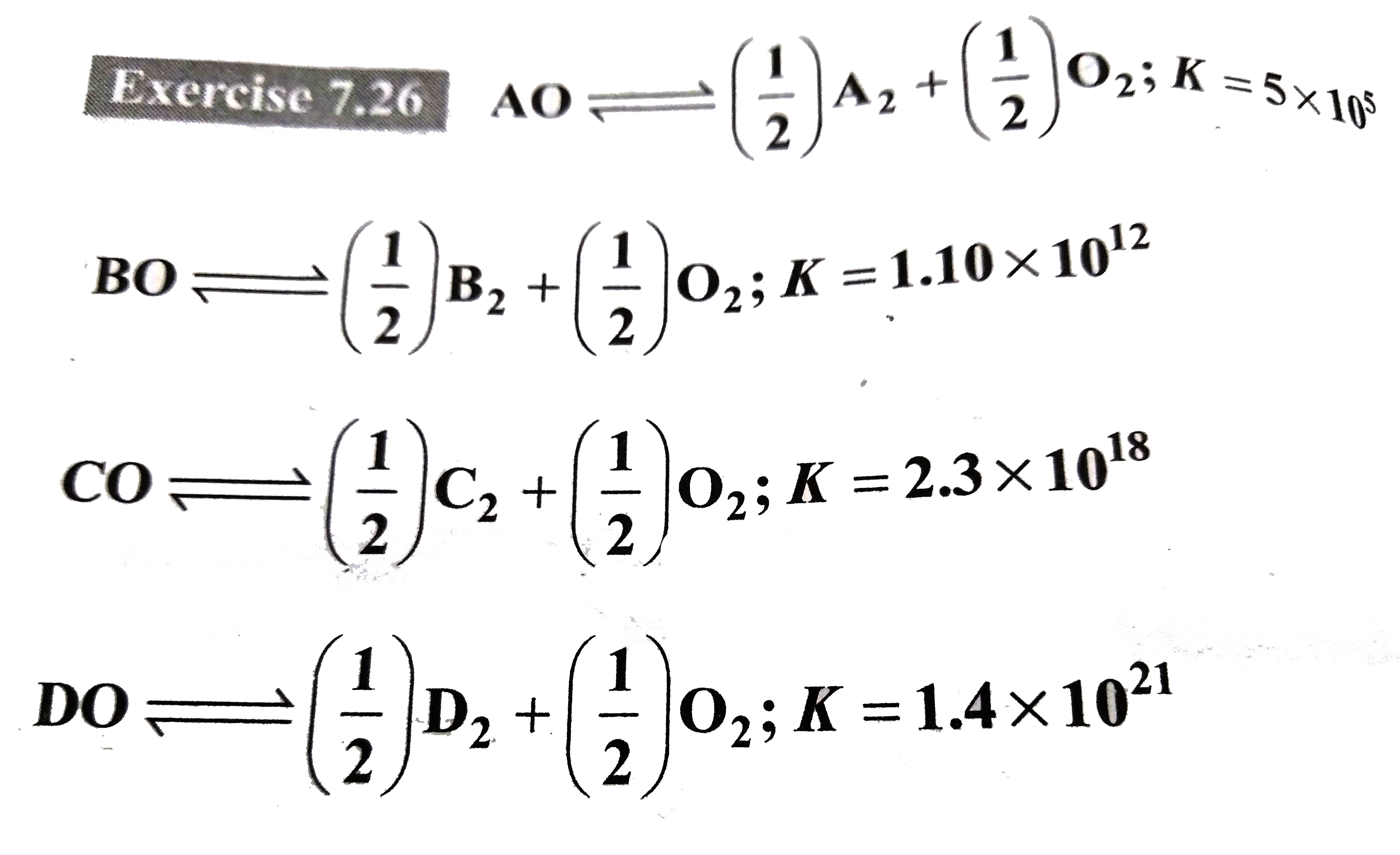The compound which gives the most stable carbonium ion on dehydration is
CH3−C∣CH3H−CH2OH
CH3−CH3∣C∣CH3−OH
CH3CH2CH2CH2OH
CH3−C∣OHH−CH2−CH3
The correct Answer is:B
To determine which compound gives the most stable carbonium ion (carbocation) upon dehydration, we need to analyze the stability of carbocations formed from different alcohols. Here’s a step-by-step solution:
Step 1: Understand Carbocation Stability
Carbocations are positively charged carbon species, and their stability is influenced by the number of alkyl groups attached to the positively charged carbon. The general order of stability for carbocations is:
- Tertiary (3°) > Secondary (2°) > Primary (1°) > Methyl (0°)
Step 2: Identify the Alcohols
We need to consider the alcohols that can undergo dehydration to form carbocations. Common alcohols include:
- Tertiary alcohols (3°)
- Secondary alcohols (2°)
- Primary alcohols (1°)
Step 3: Analyze the Given Compound
The compound given in the video transcript is:
- CH3-C(OH)(CH3)-CH3 (which is a tertiary alcohol)
Step 4: Predict the Carbocation Formation
Upon dehydration (loss of water), the tertiary alcohol will lose a water molecule to form a tertiary carbocation:
- CH3-C(OH)(CH3)-CH3 → CH3-C+(CH3)-CH3 + H2O
Step 5: Determine the Stability of the Carbocation
Since the carbocation formed is tertiary, it is the most stable type of carbocation due to the +I (inductive) effect of the three alkyl groups surrounding the positively charged carbon.
Conclusion
The compound that gives the most stable carbonium ion upon dehydration is the tertiary alcohol CH3-C(OH)(CH3)-CH3.
Final Answer:
The correct option is the tertiary alcohol: CH3-C(OH)(CH3)-CH3.
---
Carbocations are positively charged carbon species, and their stability is influenced by the number of alkyl groups attached to the positively charged carbon. The general order of stability for carbocations is:
- Tertiary (3°) > Secondary (2°) > Primary (1°) > Methyl (0°)
We need to consider the alcohols that can undergo dehydration to form carbocations. Common alcohols include:
- Tertiary alcohols (3°)
- Secondary alcohols (2°)
- Primary alcohols (1°)
The compound given in the video transcript is:
- CH3-C(OH)(CH3)-CH3 (which is a tertiary alcohol)
Upon dehydration (loss of water), the tertiary alcohol will lose a water molecule to form a tertiary carbocation:
- CH3-C(OH)(CH3)-CH3 → CH3-C+(CH3)-CH3 + H2O
Since the carbocation formed is tertiary, it is the most stable type of carbocation due to the +I (inductive) effect of the three alkyl groups surrounding the positively charged carbon.
The compound that gives the most stable carbonium ion upon dehydration is the tertiary alcohol CH3-C(OH)(CH3)-CH3.
The correct option is the tertiary alcohol: CH3-C(OH)(CH3)-CH3.
Topper's Solved these Questions
- BOOK - ICSECHAPTER - ORGANIC CHEMISTRY : SOME BASIC PRINCIPLES AND TECHNIQUES EXERCISE - TRUE OR FALSE TYPE QUESTIONS50videos
ORGANIC CHEMISTRY : SOME BASIC PRINCIPLES AND TECHNIQUES
- BOOK - ICSECHAPTER - ORGANIC CHEMISTRY : SOME BASIC PRINCIPLES AND TECHNIQUES EXERCISE - FILL IN THE BLANK TYPE QUESTIONS46videos
ORGANIC CHEMISTRY : SOME BASIC PRINCIPLES AND TECHNIQUES
- BOOK - ICSECHAPTER - ORGANIC CHEMISTRY : SOME BASIC PRINCIPLES AND TECHNIQUES EXERCISE - ESSAY ( LONG ANSWER ) TYPE QUESTIONS42videos
ORGANIC CHEMISTRY : SOME BASIC PRINCIPLES AND TECHNIQUES
- BOOK - ICSECHAPTER - HYDROGENEXERCISE - NCERT TEXT-BOOK EXERCISE (With Hints and Solutions)53videos
HYDROGEN
- BOOK - ICSECHAPTER - REDOX REACTIONS (OXIDATION AND REDUCTION)EXERCISE - NCERT TEXT-BOOK. EXERCISES ((With Hints and Solutions)69videos
REDOX REACTIONS (OXIDATION AND REDUCTION)
Similar Questions
Knowledge Check
- Question 1 - Select One
Which of the following alcohols will give the most stable carbocation during dehydration ?
A2- Methyl-1- propanalB2-Methyl-2-propanolC1 - ButanolD2-Butanol - Question 2 - Select One
Among the given cations, the most stable carbonium ion is?
Asec-butylBtert-butylCr-butylDNone of these


